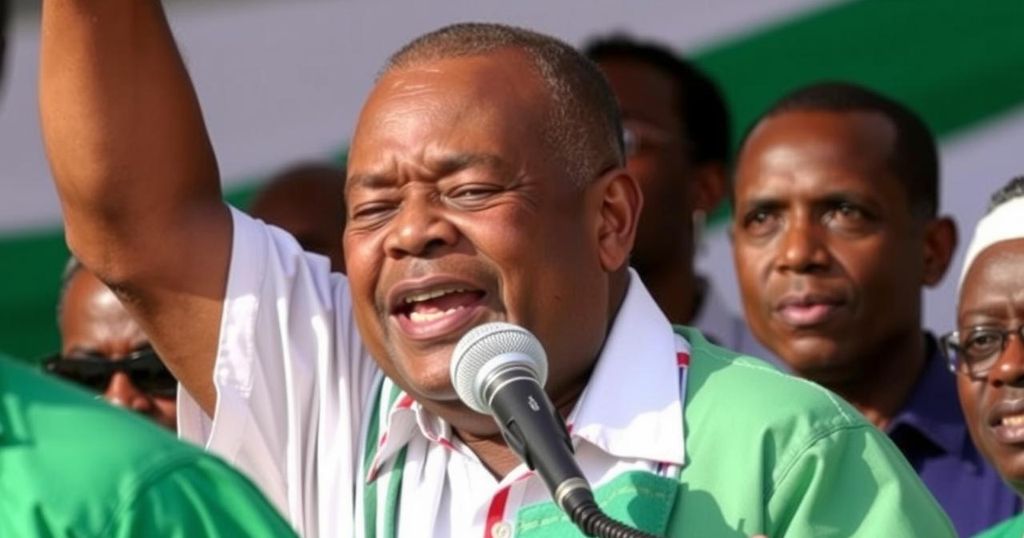World news
AFRICA, AHMED BARTCHIRET, ANGE, ASIA, BURKINA FASO, CHAD, CHINA, DE, DEBY, DEMOCRACY, DEMONSTRATIONS, ELECTIONS, EUROPE, EUROPE/ASIA, FRANCE, GOVERNMENT, MAHA, MALI, NATIONAL ASSEMBLY, NIGER, OPPOSITION, PARIS, PATRIOTIC SALVATION MOVEMENT, REUTERS, RUSSIA, SUCCES MASRA
Marcus Chen
0 Comments
Chad’s Ruling Party Achieves Majority in Controversial Election
Chad’s ruling MPS party won a majority in parliamentary elections amid an opposition boycott, securing 124 of 188 seats. While the government claims this is a step towards democracy, opposition groups contend that the process lacked transparency, raising concerns about legitimacy and fairness in the electoral process.
The parliamentary elections in Chad, conducted last month, resulted in a significant victory for the ruling Patriotic Salvation Movement (MPS) led by President Mahamat Idriss Deby, who secured a commanding majority in the National Assembly. Reportedly, the MPS won 124 out of 188 available seats. However, the elections were marred by a boycott from opposition parties, who criticized the process as lacking transparency and fairness. Despite the opposition’s claims, the government has heralded this election as a key step toward democratization in Chad.
Ahmed Bartchiret, head of the National Elections Management Agency (ANGE), announced a voter participation rate of 51.56% and indicated that a diverse array of 38 political groupings would gain representation. Nevertheless, details regarding the allocation of seats among non-MPS representatives remain ambiguous. The opposition, spearheaded by Succes Masra’s Transformateurs party, rejected the election results outright, stating the political environment was skewed in favor of the ruling party.
President Deby became the interim leader following the death of his father, who had presided over the nation for three decades until his assassination in 2021. The current government has recently terminated its defense cooperation agreement with France, indicating a shift toward enhancing its sovereignty and potentially aligning with nations like Russia—a trend observed in several other West African countries.
Chad, located in Central Africa, has been under the leadership of the Deby family for over three decades, initiating with former President Idriss Deby. After the assassination of Idriss Deby in 2021, Mahamat Idriss Deby assumed leadership, appointing himself as interim president to stabilize the nation. The recent parliamentary elections, characterized by a lack of opposition participation, have raised concerns regarding democracy and governance in the country. The controversies surrounding these elections draw attention to the political challenges Chad faces as it navigates its transition toward democratic rule.
In conclusion, the recent parliamentary elections in Chad resulted in a substantial victory for President Mahamat Idriss Deby’s ruling party amid a boycott and significant criticism from opposition factions. The outcome has sparked discussions about the integrity of the electoral process and the government’s commitment to democratic principles. As Chad moves forward, the implications of these elections will be closely scrutinized, especially in light of evolving international relations and internal stability issues.
Original Source: www.dw.com




Post Comment